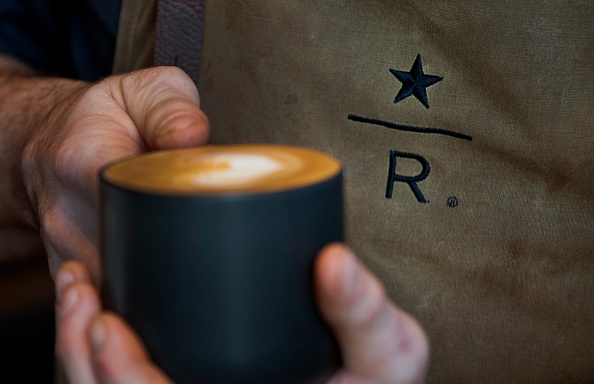You have /5 articles left.
Sign up for a free account or log in.

Getty Images
The recent college graduate working in Starbucks is the nightmare of many parents and also of college admissions officers, who feel that stories about that stereotype discourage many prospective students.
Two economists at the Federal Reserve Bank of New York on Monday released a summary of their recent research that finds the stereotype to be false and the economic difficulties of recent college graduates to be overstated. The headline of the summary: "Working as a barista after college is not as common as you might think."
The economists -- Jaison R. Abel and Richard Deitz -- don't deny that the economic downturn that started in 2008 depressed the job market for new graduates, and left many of them underemployed. But citing Census Department data, they show that most of the underemployment took place in jobs that pay better than food service and that most recent graduates have moved past their initial employment in jobs that didn't require a bachelor's degree.
And while Abel and Deitz note that things were more difficult for some liberal arts graduates than for those with more career-related majors, they say the general pattern applies there, too, and that liberal arts graduates are also not relegated to the service industry.
"Contrary to popular belief, most underemployed recent college graduates were not working in low-skilled service jobs following the Great Recession. Indeed, nearly half were working in relatively high-paying jobs, with more than 10 percent working in the information processing and business support, managers and supervisors, and sales categories," Abel and Deitz write. "At 25 percent, the largest share of underemployed recent college graduates worked in the office and administrative support category. While these jobs may not be as desirable as the typical college job … they are significantly better than low-skilled service jobs. That said, about one-fifth of underemployed recent college graduates -- roughly 9 percent of all recent graduates -- did work in a low-skilled service job." (A college graduate for purpose of their analysis was someone with a bachelor's degree.)
The analysis adds that "underemployed college graduates were much more likely to be working in higher-paying jobs than [were] those without a college degree." About 40 percent of underemployed recent college graduates were employed in the four highest-paid categories of noncollege occupations, the study found, while only 18 percent of young workers without degrees held such jobs.
At the same time, more than half of young workers without a degree were working as "low-paying physical laborers and [in] low-skilled service occupation groups, double the share for recent college graduates," the analysis said.
The federal data also show that, while the first years after graduation are difficult, young workers who are college graduates are in fact moving into positions that require a college degree. Even in their early 20s, this share was 48 percent during the recent recession, but was up to 59 percent once graduates hit their mid-20s.
The summary does not dispute that the postcollege period has been challenging for many graduates, much more challenging than it was before the economic downturn. But the summary makes the point that throughout the downturn, those with bachelor's degrees fared much better than those without.
Most of the analysis focuses on college graduates generally, but the research also looked at the impact of college major. Here again, the economists found that liberal arts graduates may have it harder than do others, but that they likely aren't working in Starbucks. About 13.5 percent of liberal arts majors ended up (at least initially) in low-paying service jobs during the economic downturn, the study finds. (By comparison, the figure for general business majors is 7.7 percent.)
Via email, Deitz said that "it is important to have accurate information in order to put these concerns in perspective." A college degree, he said, "remains a worthwhile investment, even for those who are underemployed."
Debra Humphreys, senior vice president for academic planning and public engagement at the Association of American Colleges and Universities, is among those who have been regularly questioning the "college graduate as barista" idea.
Asked why that idea resonates with so many people, even in the face of analysis like the Federal Reserve's, she said via email, "I think this trope emerges again and again in our national dialogue about higher education for two reasons. It stems first and foremost just from a general economic anxiety about the future and whether the various ways in which we try to prepare for the future -- and help our children prepare for it -- will ultimately work out for them. In today’s world, of course, it also stems from a reality that is 'new' -- that the next generation may, indeed, not have as much economic success as in the past."
Humphreys added that this theme "also is partly a symptom of residual anti-intellectualism in our society. Education is prized, but it’s also an object of suspicion. People who are predisposed to have mixed feelings about 'intellectuals' and, by extension, particular disciplines that represent the most esoteric view of intellectualism (e.g. humanities, philosophy, etc.) seize on examples which show education isn’t really valuable. Of course, the dialogue always ends up one in which those denigrating the enterprise with these kinds of examples end up sending their own children to our more elite institutions with strong commitments to liberal education -- and the liberal arts and humanities.”




